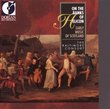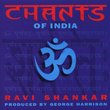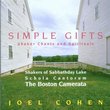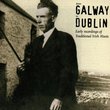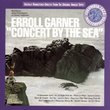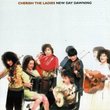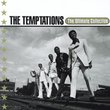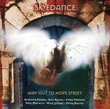| All Artists: Jean-Philippe Rameau, William Christie, Sophie Daneman, Noemi Rime, Paul Agnew, Nicolas Rivenq, Nicolas Cavallier, Simon Heyerick, Jory Vinikour, Alix Verzier, Les Arts Florissants Title: Rameau - Les Grands Motets / Daneman, Rime, Agnew, Rivenq, Cavallier, Les Arts Florissants, Christie Members Wishing: 1 Total Copies: 0 Label: Erato Release Date: 11/8/1994 Genre: Classical Styles: Opera & Classical Vocal, Historical Periods, Baroque (c.1600-1750) Number of Discs: 1 SwapaCD Credits: 1 UPC: 745099696726 |
Search - Jean-Philippe Rameau, William Christie, Sophie Daneman :: Rameau - Les Grands Motets / Daneman, Rime, Agnew, Rivenq, Cavallier, Les Arts Florissants, Christie
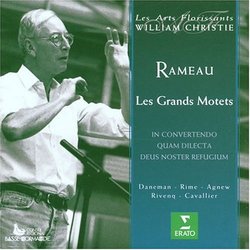 | Jean-Philippe Rameau, William Christie, Sophie Daneman Rameau - Les Grands Motets / Daneman, Rime, Agnew, Rivenq, Cavallier, Les Arts Florissants, Christie Genre: Classical
Rameau's grands motets were written for concert performance; the florid solos, grand choruses and important orchestral participation are very reminiscent of French Baroque opera. The motets are, however, much more interest... more » |
Larger Image |
CD DetailsSynopsis
Amazon.com essential recording Rameau's grands motets were written for concert performance; the florid solos, grand choruses and important orchestral participation are very reminiscent of French Baroque opera. The motets are, however, much more interesting to the casual listener: there is no recitative; the arias, duo and trios are full of extended melody and ornament; the choruses have an unusual amount of counterpoint (including the occasional fugue). William Christie and Les Arts Florissants perform this music with all the grace and authority one could wish for. Special mention: each motet begins with a movement for solo voice with flute(s) and strings--the singing of Paul Agnew and Sophie Daneman in these movements is delectable. --Matthew Westphal Similarly Requested CDs
|
CD ReviewsBest of the best 03/12/1999 (5 out of 5 stars) "This is an extraordinary performance which deservedly received the Gramophone best vocal CD award for 1995. Rameau's music is very recognizable, its distinctive flavor evident in the melodic structure of the motets and in the agrements with which they are performed. This flavor is characteristically French, permeating French baroque music generally, yet present in Rameau's compositions in its purest, most refined, strain. Even in motets which are, as the name implies, of a religious origin, Rameau's music is animated, espressive and individualized. Whether or not it was performed in a church or in a salon, it implies a radical personal relationship with God, as opposed to serving merely as part of an impersonal medium between the holder and the recipient of truth, the role the earlier church music (e.g. Gesualdo) served. For this reason, Rameau's motets are surprisingly gripping, in a way that can appeal even to a casual listener. They are also superbly performed. Christie, a notable expert in French baroque, offers a finely tuned yet emotional account of these motets. Some of the best baroque soloists, all of whom enjoy a lasting and productive relationship with Christie, make memorable contributions to this recording. I was particularly impressed with the singing of Paul Agnew, Christie's favorite tenor at the moment, and Nicolas Rivenq whose basse-taille is simply glowing. Like I said, these soloists have made a number of other recordings with Christie which, I think, anybody with the remotest interest in baroque should definitely discover. My personal favorite is La Descente d'Orphee aux Enfers, with Agnew." Wonderful works, great performance Itamar Ronen | Boston, MA USA | 10/18/2001 (5 out of 5 stars) "Rameau is one of those endlessly surprising composers - you think you know Rameau through his highly inventive keyboard music, and then you realize you missed the fact that he's a great orchestral genius. And then a great opera composer - and here as a genius of choral music. The music of the Motets is complex and yet, as always with Rameau, with a very "straight to the heart" emotional content. Bill Christie and his Les Arts Florissants are the perfect ensemble to convey the maximum output from this wonderful music. Enjoy!" Rameau in a Different Guise (It's Still Rameau!) M. C. Passarella | Lawrenceville, GA | 07/28/2005 (5 out of 5 stars) "Rameau is one of those composers, like Mozart, whose style did not vary greatly from one genre to the next. Both could be accused of writing sacred music that is too operatic in nature. This is especially true of Rameau; you will hear music in these Grand Motets that might have come from one of his many operas. Is this a bad thing? Not at all. In his operas, Rameau was more concerned, it seems, with expanding the role of the orchestra and chorus, and with achieving musical fidelity to the text, than with deep psychological exploration of character. In his sacred music, the same concerns produce ensembles that, rich though the counterpoint may be, convey the text with utter clarity; try the remarkable quartet "Conturbatae sunt gentes" from "Deus Noster Refugium." These concerns also produce lively--or poignant--but always fluid choruses and charming orchestral effects, especially in the winds. Only Rameau could achieve the wonderful colors that flutes, oboes, and bassoons lend to the slow solos and choruses. They're almost like another choir of voices. This is gorgeous music.
William Christie and Les Arts Florissants are superb advocates. The orchestra makes wonderful sounds, and the chorus tosses off Rameau's coloratura with great aplomb. Of the soloists, Paul Agnew and Sophie Daneman are especially praiseworthy, but everyone involved contributes to the thorough success of this endeavor. There is great presence to the sound as well. It's a fairly close recording but with plenty of air and with a perfect balance among the forces involved. A disc to be cherished." |

 Track Listings (24) - Disc #1
Track Listings (24) - Disc #1